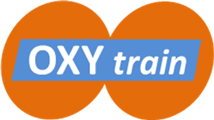
WP4 – Cofactor-independent oxygenases (RUG – ESR10, RUG – ESR11 and WWU – ESR12)
Details on how these enzymes function and for what type of conversions they can be employed are still lacking. Therefore, research will provide valuable insights into how these cofactor-independent enzymes gain access to the oxidising power of molecular oxygen, and enable future industrial and biomedical applications. The Poelarends group (RUG – ESR10 and ESR11) will perform mechanistic and structural studies on cofactor-independent monooxygenases that belong to the tautomerase superfamily and catalyse the oxidative cleavage of 4-hydroxyphenylenolpyruvate. ESR10 will be seconded to SYN to synthesise and analyse HPP analogues. The aim of the work is to elucidate the physiological function of these unusual oxygenases, determine their substrate scope, and identify the residues involved in catalysis as well as the additional features necessary for a specific cofactor-independent oxygenase. The Fetzner group (WWU – ESR12) will focus on novel cofactor-independent dioxygenases that are highly active towards the alkylquinolone-type quorum sensing molecule PQS of the opportunistic pathogen Pseudomonas aeruginosa, with the aims to compare the members of this enzyme family in terms of catalytic efficiency and stability, and to assess the potential of these quorum quenching enzymes to interfere with virulence factor production by P. aeruginosa. State-of the art techniques in spectroscopy and analytics will be applied for quantitative enzyme characterization. This will open up perspectives for biomedical applications of this group of enzymes.
